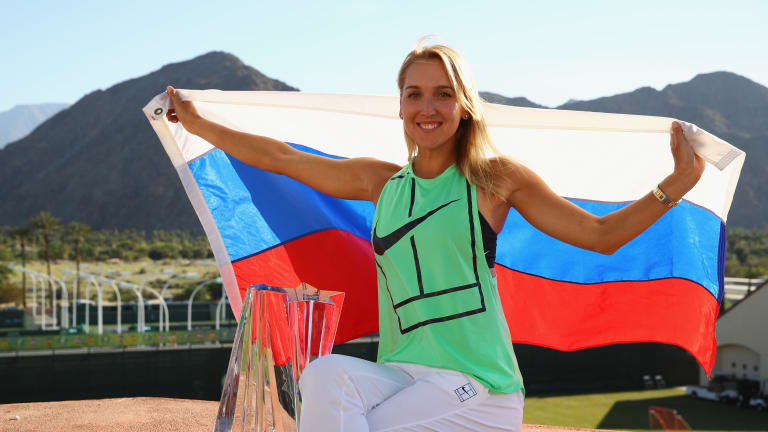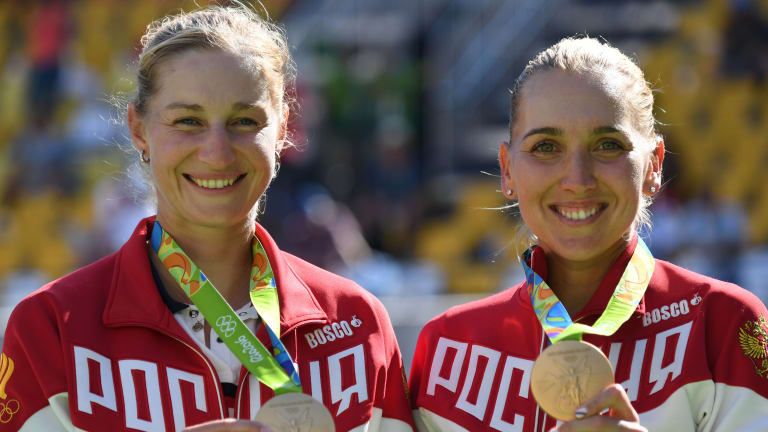The Tao of Elena Vesnina: Olympian plots return inspired by daughter
By Jan 22, 2021Social
Elena Vesnina defends podcast after viral Veronika Kudermetova interview, Holger Rune comments
By Jan 05, 2026Social
'What a ride': Former doubles No. 1 Elena Vesnina announces retirement from tennis
By Nov 22, 2024Tennis.com Interview
Superwoman Elena Vesnina unveils second comeback, Olympic dream, and final tennis farewell
By Jan 12, 2024Social
Elena Vesnina reveals second pregnancy in angelic Instagram reel
By Mar 01, 2023News
WATCH: Elena Vesnina takes daughter for first tennis lesson
By Jun 20, 2022News
Elena Vesnina confirms return of stolen Olympic medals
By Nov 03, 2021News
Fabio Fognini, Elena Vesnina bond over parenting in latest CrossCourt episode
By Sep 26, 2021News
Elena Vesnina reveals Olympic medals, jewelry stolen in home invasion
By Sep 12, 2021News
Elena Vesnina announces Tokyo Olympics Instagram giveaway
By Aug 13, 2021The Tao of Elena Vesnina: Olympian plots return inspired by daughter
The former doubles No. 1 announced a comeback after giving birth to daughter Elizaveta in 2018, eager to kick off a second career free from expectations and with her family by her side.
Published Jan 22, 2021
Advertising
Advertising

The Tao of Elena Vesnina: Olympian plots return inspired by daughter
© 2017 Getty Images
Advertising

The Tao of Elena Vesnina: Olympian plots return inspired by daughter
© AFP via Getty Images
Advertising

The Tao of Elena Vesnina: Olympian plots return inspired by daughter